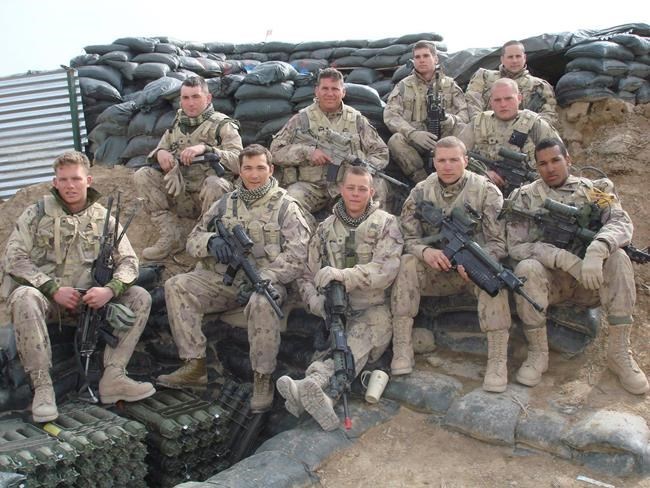PORT HAWKESBURY, N.S. — The psychiatrist who diagnosed Cpl. Lionel Desmond with post-traumatic stress disorder in 2011 told a fatality inquiry Tuesday that the soldier had great difficulty dealing with major life stressors, even after four years of treatment.
The inquiry is investigating why Desmond — a veteran of the war in Afghanistan — killed his wife, mother and 10-year-old daughter before killing himself in their rural Nova Scotia home in 2017.
Dr. Vinod Joshi, who works part-time at Canadian Forces Base Gagetown in New Brunswick, told the inquiry that Desmond was suffering from moderate to severe PTSD when the psychiatrist first assessed him.
Joshi, a civilian contractor with the Canadian Armed Forces, said the infantryman had been subjected to traumatic events during a seven-month tour of duty in Afghanistan in 2007.
"He was extremely distressed," Joshi said.
The psychiatrist's assessment, completed Sept. 28, 2011, noted that the young rifleman told him about having to carry body bags, witnessing the deadly impact of an airstrike and having flashbacks about seeing the remains of a man's torso after an explosion.
Last week, a member of Desmond's platoon in Afghanistan told the inquiry the group engaged in intense firefights with the Taliban on almost a daily basis. Orlando Trotter, a former corporal, said he knew of eight soldiers from their battalion who had committed suicide after serving in Afghanistan.
The inquiry has also heard that Desmond suffered three separate head injuries while serving in the military and was suspected of having a traumatic brain injury. Joshi, however, testified that in 2011, Desmond said he had never injured his head.
Joshi said Desmond's symptoms included night sweats, avoidance of crowds, hyper-vigilance, anxiety, angry outbursts and thoughts of suicide. But the doctor said Desmond displayed no psychosis or any plans to actually kill himself or hurt others.
The assessment also noted that Desmond had not sought any mental-health treatment until almost four years after he left Afghanistan.
"Many (military) members try to manage their symptoms on their own," Joshi testified, adding that Desmond's symptoms were considered common among soldiers diagnosed with PTSD.
As well, Joshi confirmed Desmond was dealing with marital difficulties throughout his course of treatment, which ended when he was medically released from the military in 2015.
"He wanted to have a relationship with his wife," Joshi said, noting that Shanna Desmond had at one point texted her husband to ask for a divorce. "He was worried she might leave him."
That was the first time the inquiry heard evidence that the Desmonds had experienced long-running marital problems. "This undercurrent of marital difficulty was there throughout," Joshi said.
Despite these challenges, Joshi said his patient seemed to respond well to his initial treatment, which included trauma-focused therapy and prescriptions for various drugs, including an antidepressant, a low-dosage antipsychotic drug and sleeping pills.
However, Joshi told the inquiry that Desmond's progress fluctuated.
Again, the psychiatrist said that wasn't unusual for soldiers with PTSD.
The military considered having Desmond return to regular duty in 2013, but Joshi said his patient experienced a significant relapse in the fall of that year. Desmond, who was Black, was apparently subjected to a racist comment while working with colleagues, he said.
Desmond continued with treatment, but Joshi came to the conclusion that life stressors would continue to lead to setbacks. "It appeared to be a long-term pattern," Joshi said, adding that it was clear Desmond could not return to regular duty.
On April 16, 2015, Joshi included the following comments on a form that summarized his last meeting with Desmond:
"Normal anxiety about future job prospects, money, etc.," the note said. "His wife has started working in ... Halifax. He is not sure of her intentions about their relationship."
Joshi told the inquiry that at the time it appeared Desmond was coping well, despite the big changes he was facing. "He was still managing," Joshi said. "A lot of it was normal anxiety."
On Jan. 3, 2017, Desmond bought a rifle and later that day shot his 31-year-old wife, their 10-year-daughter, Aaliyah, and his 52-year-old mother, Brenda, before killing himself in their home in Upper Big Tracadie, N.S.
In the months and years that followed, friends and relatives openly complained that after Desmond returned home to Nova Scotia in August 2016, his attempts to seek help for his mental illness led him nowhere.
Evidence from the inquiry confirmed that Desmond received no therapeutic treatment in the four months before the killings.
This report by The Canadian Press was first published Feb. 23, 2021.
— By Michael MacDonald in Halifax.
The Canadian Press



